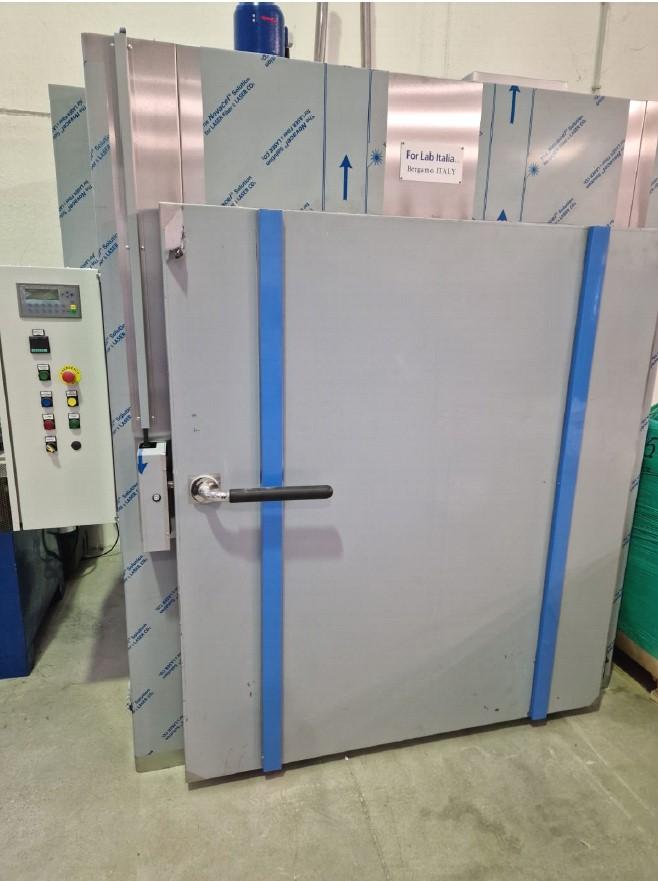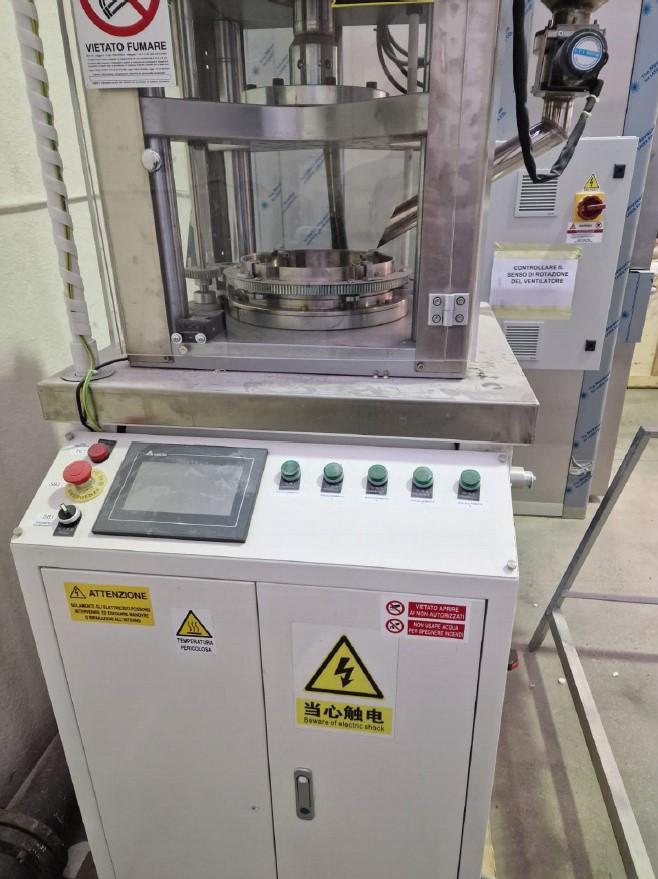Felis Srl acquires two new machines: a Ptfe oven for Teflon molding and a PTFE
extruder.
The Ptfe Oven can be used for:
- Sintering of the raw material.
- Production of Ptfe pipes and PTFE rods with diameters ranging from 200 mm to 500 mm and length up to 300 mm.
- Ptfe Sheets: Various dimensions available.
- Production of finished molded parts.

From the processing of these products it will be possible to obtain:
- Gaskets and Seals: PTFE is used as a material for gaskets and seals in high pressure and temperature applications where high chemical resistance is required.
- Components for valves and pumps: PTFE is used in the production of components for valves and pumps, such as valve seats, diaphragms.
- Filters and membranes: PTFE is used in the production of filters and membranes for the chemical, pharmaceutical and food industries.
- Components for the aeronautical industry: PTFE is used in the production of components for the aeronautical industry, such as coatings for turbine components.
- Custom made-parts for Industry
- Rings, Connectors, Spacers, Fittings, Bellows.
- Electrical insulation components.
- O-ring.
- Backup Rings.
- Finished pieces from processes such as threading, milling, die-cutting, shaping, flattening, turning, machining.
PTFE Extruder can be used for:
- PTFE EXTRUDED RODS from 5 till 200 mm, lenght: 1 or 2 meter.
- PTFE EXTRUDED PIPES with an outer diameter not less than 15 mm and a wall of at least 3 mm and length of 1 or 2 meters.

From these products it will then be possible to obtain:
- Gaskets capable of static and dynamic stress.
- Piston.
- Machine parts and/or components.
- Ptfe O-rings.
- Ptfe Washers.
- Ptfe Custom made-parts.
- PTFE bellows and compensators.
- Ptfe tubulars by CNC lathe.
- PTFE Gland Ptfe, cone and ogives.
- Ptfe Bushes.
- Oil Seals.
Fields of application of PTFE:
- Industrial sector for mechanical properties.
- Energy for resistance to high temperatures.
- Automotive for chemical properties and aging resistance.
- Electronic industry due to the high insulation degree.
- Food industry being suitable for food contact.
- Aerospace industry for mechanical properties and chemical inertia.
- Compressors thanks to minimal wear.
- Chemical industry for its resistance to high temperatures and chemicals.
- Medical industry for its biocompatibility.
- Petrochemical industry due to its chemical inertness, temperature resistance and aging resistance.
- Construction as it is not exposed to atmospheric agents.
- Robotics for self-lubricating capabilities and low friction coefficient.
- Nautical industry for chemical inertness and resistance to temperatures and jamming.


